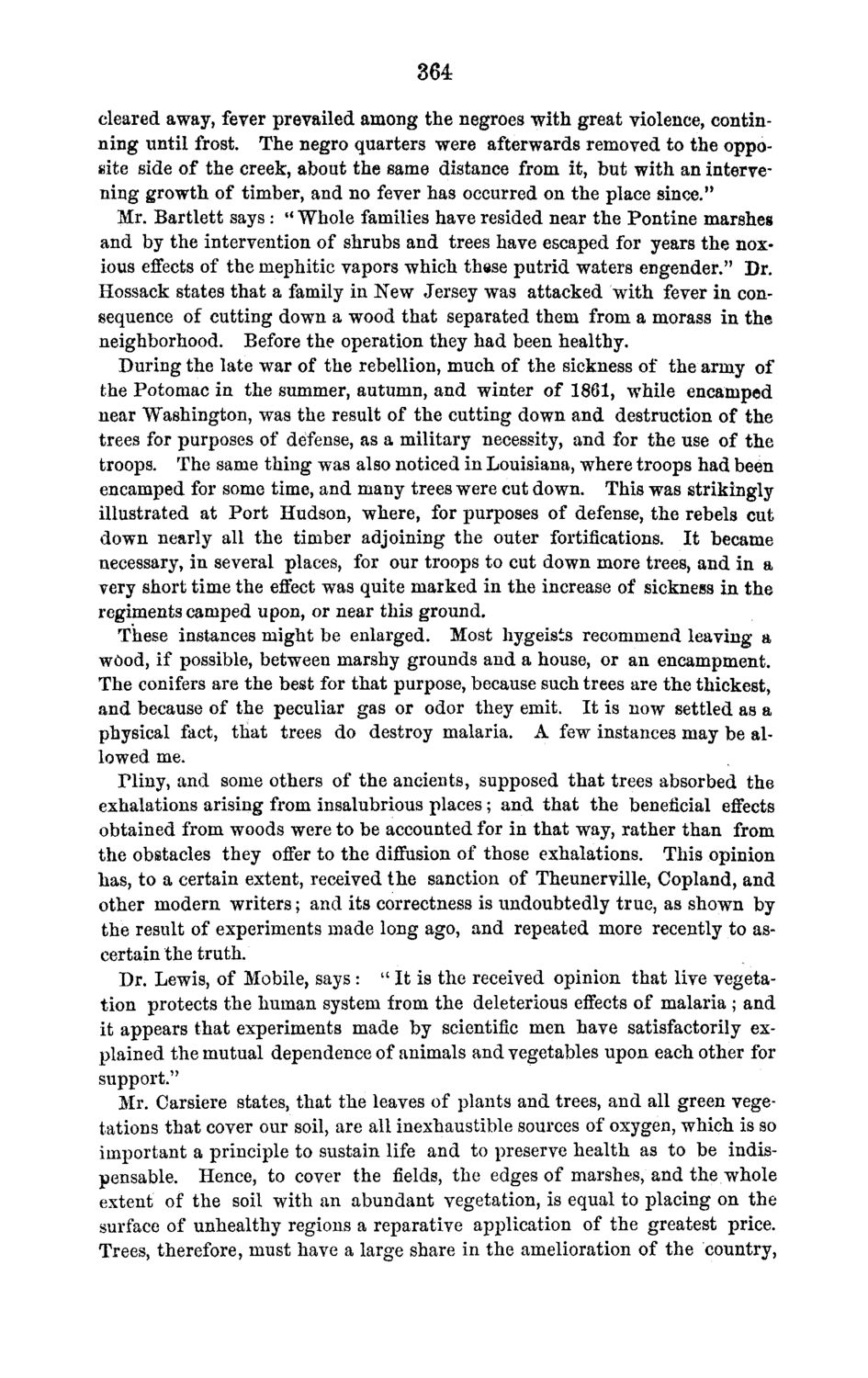| |
| |
Caption: Board of Trustees Minutes - 1870
This is a reduced-resolution page image for fast online browsing.

EXTRACTED TEXT FROM PAGE:
364: cleared away, fever prevailed among the negroes with great violence, continuing until frost. The negro quarters were afterwards removed to the opposite side of the creek, about the same distance from it, but with an intervening growth of timber, and no fever has occurred on the place since." Mr. Bartlett says : " Whole families have resided near the Pontine marshes and by the intervention of shrubs and trees have escaped for years the noxious effects of the mephitic vapors which these putrid waters engender." Dr. Hossack states that a family in New Jersey was attacked with fever in consequence of cutting down a wood that separated them from a morass in the neighborhood. Before the operation they had been healthy. During the late war of the rebellion, much of the sickness of the army of the Potomac in the summer, autumn, and winter of 1861, while encamped near Washington, was the result of the cutting down and destruction of the trees for purposes of defense, as a military necessity, and for the use of the troops. The same thing was also noticed in Louisiana, where troops had been encamped for some time, and many trees were cut down. This was strikingly illustrated at Port Hudson, where, for purposes of defense, the rebels cut down nearly all the timber adjoining the outer fortifications. It became necessary, in several places, for our troops to cut down more trees, and in a very short time the effect was quite marked in the increase of sickness in the regiments camped upon, or near this ground. These instances might be enlarged. Most hygeists recommend leaving a wood, if possible, between marshy grounds and a house, or an encampment. The conifers are the best for that purpose, because such trees are the thickest, and because of the peculiar gas or odor they emit. It is now settled as a physical fact, that trees do destroy malaria. A few instances may be allowed me. Pliny, and some others of the ancients, supposed that trees absorbed the exhalations arising from insalubrious places; and that the beneficial effects obtained from woods were to be accounted for in that way, rather than from the obstacles they offer to the diffusion of those exhalations. This opinion has, to a certain extent, received the sanction of Theunerville, Copland, and other modern writers; and its correctness is undoubtedly true, as shown by the result of experiments made long ago, and repeated more recently to ascertain the truth. Dr. Lewis, of Mobile, says : " It is the received opinion that live vegetation protects the human system from the deleterious effects of malaria ; and it appears that experiments made by scientific men have satisfactorily explained the mutual dependence of animals and vegetables upon each other for support." Mr. Carsiere states, that the leaves of plants and trees, and all green vegetations that cover our soil, are all inexhaustible sources of oxygen, which is so important a principle to sustain life and to preserve health as to be indispensable. Hence, to cover the fields, the edges of marshes, and the whole extent of the soil with an abundant vegetation, is equal to placing on the surface of unhealthy regions a reparative application of the greatest price. Trees, therefore, must have a large share in the amelioration of the country,
| |